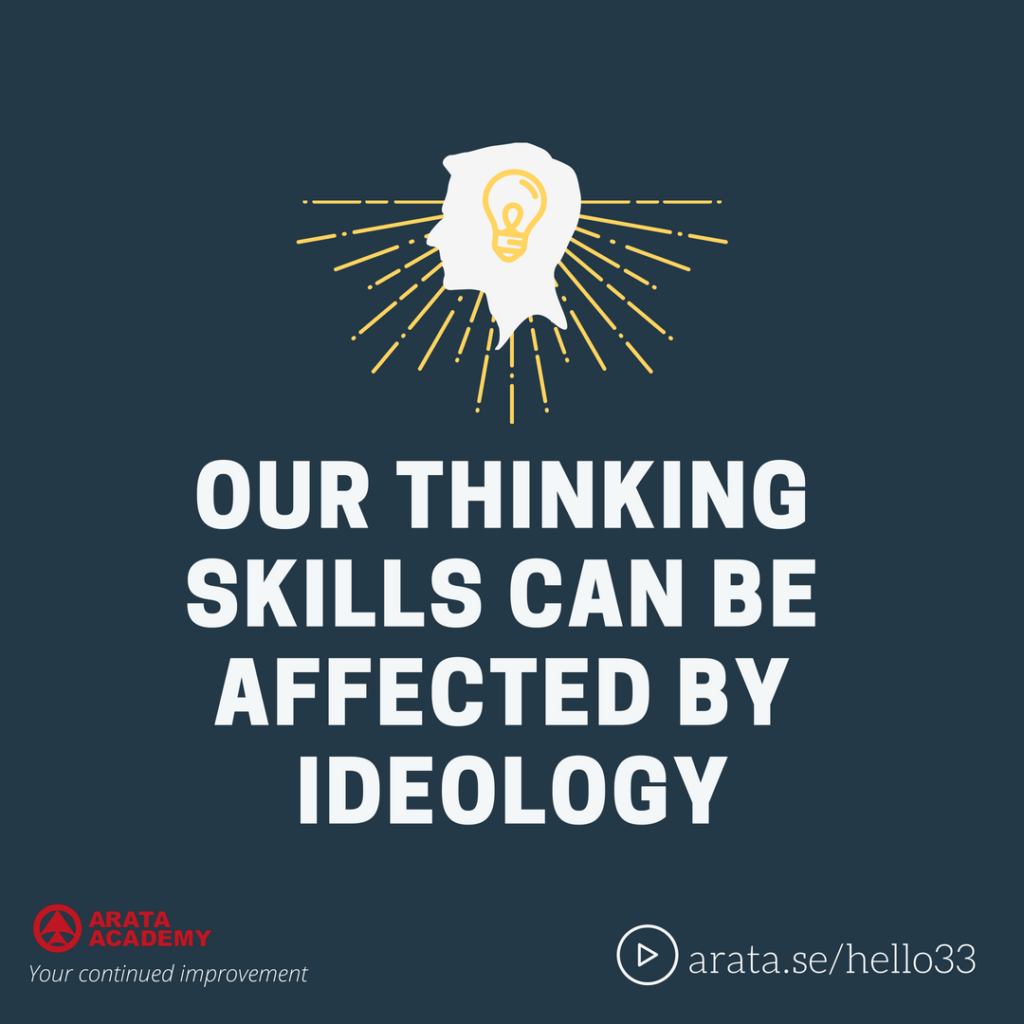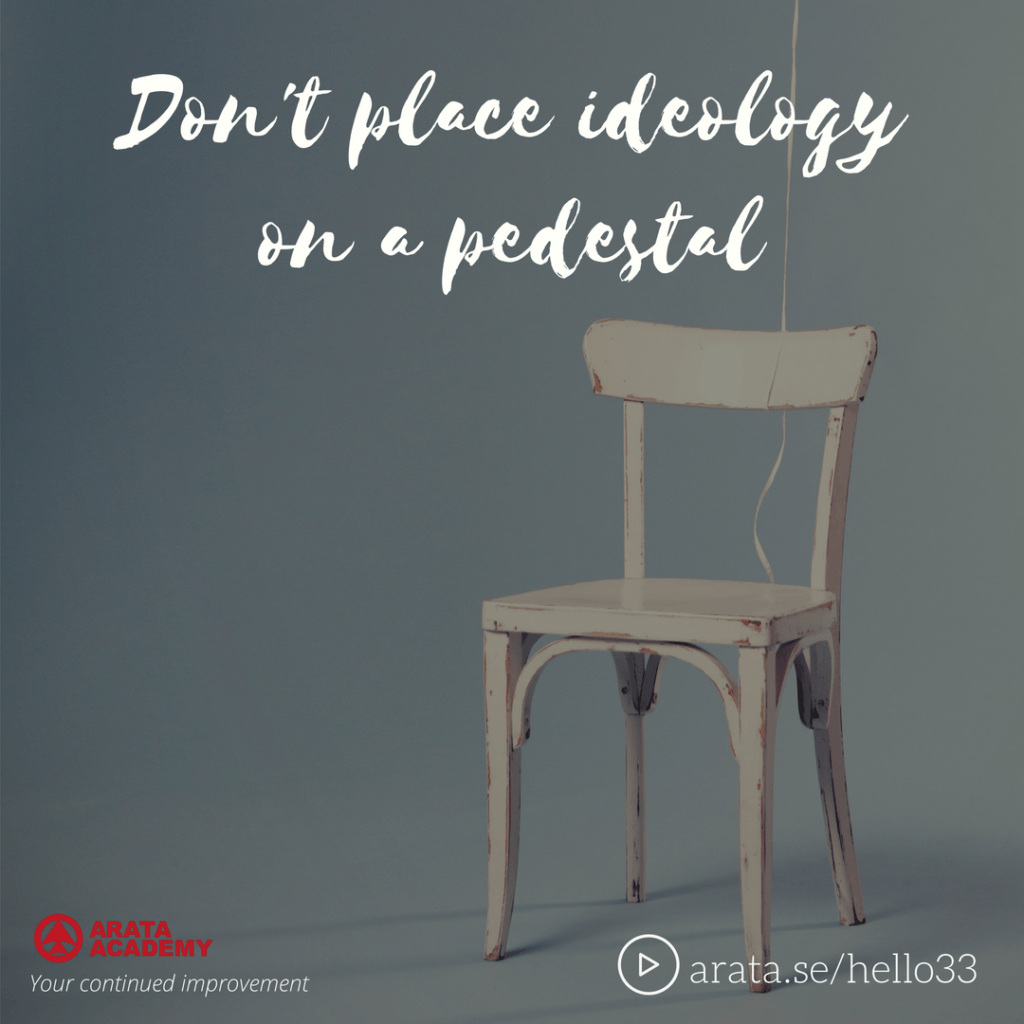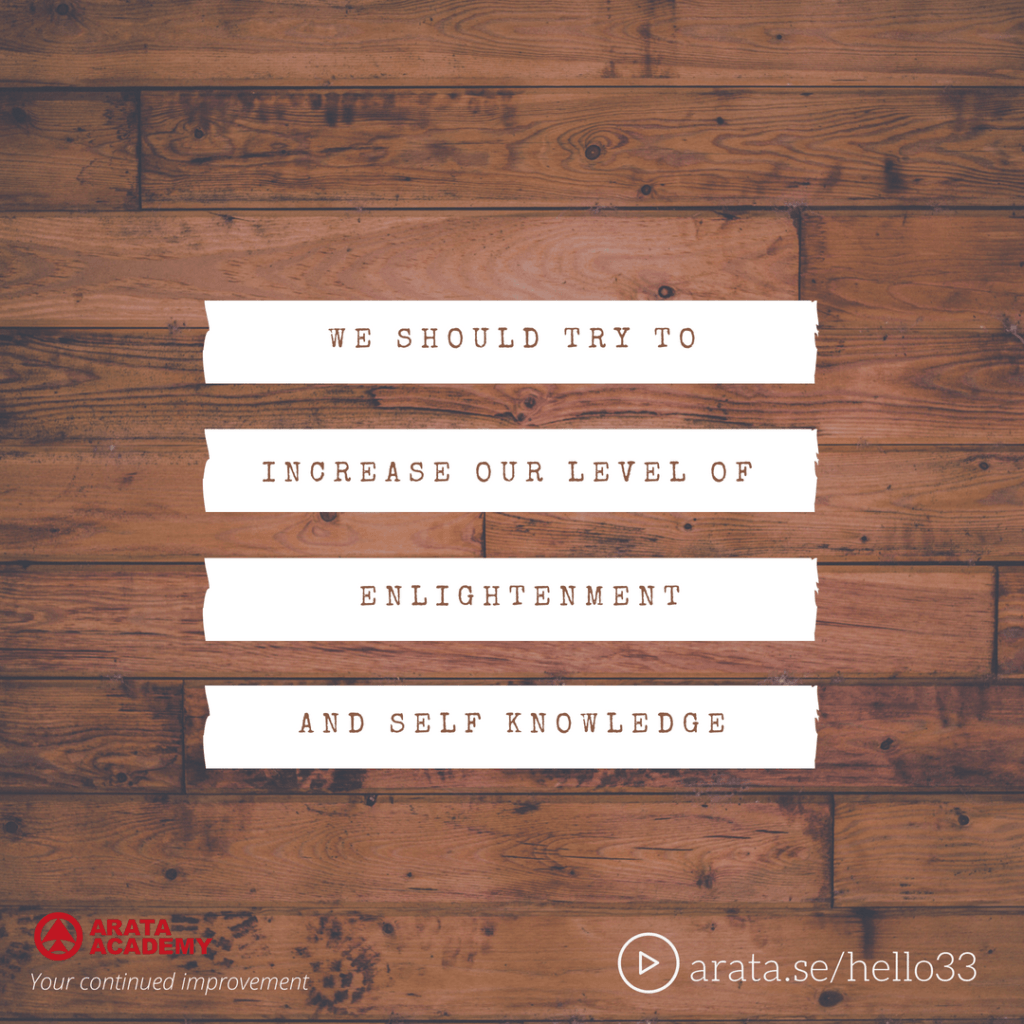Hello! Seiiti Arata. Ideology can cause problems when we have already reached a conclusion without even looking at the evidence.
1. Our brain is subject to various cognitive mistakes.
For those who are interested in going deeply into the study of the mistakes that our brain makes, there is a very interesting book in this link: [http://arata.se/sfoj].
Ideology interferes with our good thinking skills when it is presented as a fixed set of ideas, assumptions, rules, an untouchable world view.
2. Be careful when ideology is placed on a pedestal and cannot be questioned.
When ideology is placed on a pedestal and cannot be questioned, we lie to ourselves, and we also lie to others, either deliberately or unconsciously, implicitly.

In this case, the quality of our thought and information begins to deteriorate because of ideology. We no longer act as rational and critical thinkers; we become blind supporters, repeating the ideology like parrots.
This is a very delicate subject, and it generates a lot of emotions.
3. It is easy to think that the OTHERS are always wrong.
Even the most radical defenders of any ideology may be nodding now, agreeing and saying, “Yeah, those people have to be more critical and use their rationality.” This is the most frightening aspect of ideology: we believe that we are in charge, even in the situations when our thought is dictated by ideology.
You’ve probably seen this in social networks when a flaming exchange of accusations takes place between people with opposing views about politics. Both sides strongly believe they have reason on their side and cannot accept anything from the other.
4. Ideology can be a trap when we cannot accept evidence to the contrary.
This is the point where the ideology is destructive — when no proof to the contrary can change my position on a particular subject. Or, when change happens only to deal with cognitive dissonance.
Psychologist Leon Festinger describes cognitive dissonance as when two or more of our beliefs come into conflict, and this creates a conflict in our ego.

We can be anxious and stressed, and to find relief we move one of the beliefs, and then we can live as if it never happened. No more dissonance.
The example that Leon Festinger uses is the smoker who continues to smoke despite knowing it’s bad for his health. To deal with the discomfort, the smoker can also think that he is getting so much pleasure in the cigarette that it is worth the risk. Or he can rationalize that the chances of actually having any health problems are small. He may tell himself that one can not live a life with zero risk. Maybe he can even get creative and imagine that if he stops smoking, he will end up gaining weight, which would also be dangerous to his health, so it makes no difference.
For all these reasons we can always seek to increase our level of enlightenment and self knowledge and thus make more informed choices, avoiding the pitfalls of self-deception.

Ideology begins to be destructive when it leads us to reject the knowledge that conflicts with our desired truth.
What is the difference between a destructive ideology and simple irrationality?
When we face a logical explanation that demonstrates our irrationality, we can recognize our mistakes and change position.
In the case of the destructive ideology, the attitude tends to be “I do not know, I do not want to know, and I hate people who know.” This is an emotional decision to remain unchanged, without maturing and growing.
This fixed position is very dangerous because it is a cornerstone of extremism, radicalism. It makes communication and understanding difficult, if not impossible.
Finally, it is always worth remembering that to find that others are always wrong is an illusion.
We must always have the humility to remember that any of us may be affected by ideology and by different biases of cognition. This is the first step to avoid falling into brain errors.

